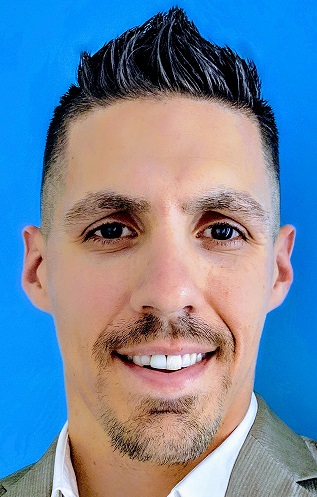Editor’s Note: This is the second of seven articles covering a story based on the author’s involvement as an expert witness in a Florida court case. Read the first article in the series.
By Dr. Gary Deel, Faculty Director, School of Business, American Military University
In this series, we’re looking into the case of a 17-year-old mentally disabled boy, Jack, who was sexually assaulted by a hotel security officer, Ivan. Ivan forced Jack into an unoccupied hotel bathroom and committed an act of sexual assault and battery.
Reviewing Surveillance Footage
Once Jack told his parents about the incident, they contacted hotel management to report it. The hotel’s general manager (GM) and director of security took a statement from Jack the next morning. They corroborated his story by reviewing the hotel’s surveillance camera footage from the previous night. Fortunately, the hotel had more than 400 cameras throughout the property, so there was plenty of footage showing Ivan leading Jack across the hotel and into the bathroom in question.
On this evidence, the GM suspended Ivan immediately, pending further investigation. She also offered to refund Jack’s family for their expenses at the hotel in an effort to compensate them for the incident. However, with respect to a police report, she advised Jack’s family that the hotel was not “the victim” so she could not call the police. If Jack’s family wanted the police involved, they would have to call themselves.
Not Calling the Police Was One of Several Mistakes by the Hotel
Just because someone is not the victim of a crime does not in any way preclude that person from calling the police and reporting the crime. Imagine what our society would be like if the only time a crime could be reported is when the victim calls it in. Witnesses to robberies, kidnappings, rapes, murders, and all other manner of criminal activity, and anyone who learns about their happening after the fact, would be unable to notify police. That notion is absurd.
To be clear, the hotel did not necessarily break any laws by declining to call the police. Although anyone can report a crime, no one is obligated to do so, unless a threat is imminent and there is a duty of care owed to the victim. In this case, the crime had been committed 12 hours earlier, so no such threat existed.
However, by declining to call the police, the hotel’s mistakes revealed something quite damaging; namely, that the hotel management did not really know the law. As mentioned earlier, the person who communicated the point to Jack’s family about the hotel being unable to call the police was the GM. Typically, safety and security-related matters like this would be handled by hotel security personnel.
However, because of the sensitivity of the situation, and the severity of Jack’s allegations about Ivan’s conduct, the GM apparently decided to attend to the family personally. She brought the security director with her for the meeting, but testimony revealed that the GM handled all questioning and communication. The security director stood by as a witness but took no part in the conversation.
Why Didn’t the GM Know that Hotels Can Report Crimes against their Guests?
This begs a series of questions, none of which bodes well for the hotel. First, why didn’t the GM, a professional in the hotel industry, know that hotels can report crimes committed against their guests? It would not necessarily be surprising that a hotel GM would not be the foremost expert on hotel law or criminal procedure. That’s why hotels have safety and security experts on their staff. But he or she should at least have enough knowledge to know that a hotel can call in law enforcement when needed. This was yet more mistakes.
Other questions: Assuming the GM did not know this, why was she leading the discussion and investigation? Why didn’t she ask the security director for support? Didn’t she know that she was not qualified to handle this situation? And what about the security director? He stood at the GM’s side throughout the conversation. Didn’t he know that what she said was incorrect? If so, why didn’t he intervene and say something to clarify such mistakes?
In discovery, not one of these questions was met with a satisfactory answer. The GM indicated that she was acting consistent with her prior understanding, misinformed though it may have been. The security director testified that he was “second in command” at the meeting with the family. Given that he reported to the GM, he did not feel it would have been wise to interject and correct her.
So ostensibly, the hotel’s management admitted to a combination of incompetence and reluctance to break rank, which led to their failure to call the police. But another theory emerges here that indicates equally plausible and equally damaging mistakes.
What if the hotel managers did know better and it wasn’t mistakes? What if they just declined to call the police because it would become infinitely more embarrassing for them when it became a matter of public record? If this were the actual motive, it would not be shocking. After all, businesses regularly go to great lengths to sweep matters under the rug and avoid damaging their brand reputation through public scrutiny.
Unfortunately, it’s virtually impossible to prove such a theory. Absent some evidence to the contrary, if the hotel employees wished to claim stupidity, we were generally obligated to take them at their word. However, notwithstanding their reasons, they nonetheless failed to handle sensitive criminal matters appropriately. And this was before any lawyers or police ever became involved in the case.
Ultimately, it was Jack’s parents who called the police.
In the succeeding parts of this series, I will discuss what happened in the criminal investigation and how the civil lawsuit unfolded.


Comments are closed.